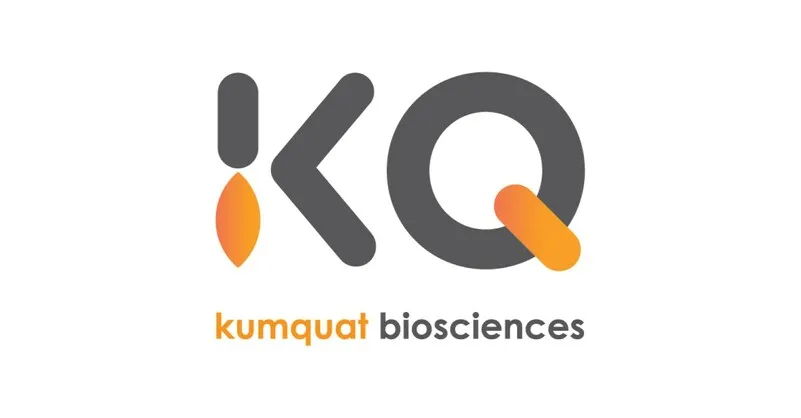
Bayer and Kumquat Biosciences Forge Global Exclusive Agreement to Advance Next-Generation KRAS G12D Inhibitor in Precision Oncology
Bayer AG, a global life sciences company with a growing presence in oncology, and Kumquat Biosciences Inc., a clinical-stage biotechnology company founded by pioneers in the KRAS pathway, have announced an exclusive worldwide license and collaboration to develop and commercialize Kumquat’s novel KRAS G12D inhibitor. This partnership marks a significant milestone in precision oncology, aiming to address one of the most prevalent and difficult-to-treat oncogenic mutations.
Under the newly signed agreement, Kumquat Bioscience will take responsibility for initiating and completing the ongoing Phase Ia clinical trial of its KRAS G12D inhibitor. Bayer will assume responsibility for the subsequent stages of development and lead all global commercialization activities.
This alliance not only brings together Bayer’s global development and commercial expertise with Kumquat Biosciences’s cutting-edge KRAS-targeting capabilities but also reflects an increasing industry focus on drugging historically “undruggable” cancer targets.
Financial Terms of the Agreement
The deal’s financial structure underscores the potential value of the KRAS G12D program. Kumquat Biosciences will receive up to $1.3 billion, which includes:
- Upfront payments for the licensing rights,
- Milestone payments tied to clinical and commercial achievements,
- Tiered royalties on future net sales.
Importantly, Kumquat retains an exclusive option to negotiate participation in profit-and-loss sharing in the United States, providing the company with the flexibility to play a more direct role in its home market’s commercial success.
Kumquat Biosciences achieved a major milestone in July 2025, when the U.S. Food and Drug Administration (FDA) cleared its Investigational New Drug (IND) application for the KRAS G12D inhibitor, enabling the company to commence its first-in-human trial.
Strategic Rationale for Bayer
Dr. Juergen Eckhardt, M.D., Head of Business Development and Licensing at Bayer’s Pharmaceuticals Division, emphasized the importance of the deal in advancing Bayer’s mission in oncology:
“We are constantly evaluating innovative approaches to improve outcomes for patients, focusing on areas of high unmet medical need. We look forward to collaborating with Kumquat Biosciences, an accomplished team of experts with deep KRAS insights. Our intent is to explore the development of a potential new treatment option for patients, while further complementing Bayer’s robust early precision oncology pipeline.”
This agreement is in line with Bayer’s strategic emphasis on expanding its precision oncology capabilities. Over recent years, Bayer has actively invested in novel therapeutic modalities targeting specific oncogenic drivers, aiming to build a diversified oncology portfolio that spans targeted therapies, radioligand treatments, and immuno-oncology approaches.
KRAS Mutations: A Major Unmet Need in Oncology
Oncogenic driver mutations—such as those occurring in KRAS—are DNA alterations that actively promote cancer Kumquat Biosciences development and progression. Identifying these mutations enables researchers to design therapies that specifically target the altered proteins, potentially improving treatment outcomes while minimizing damage to healthy tissues.

The KRAS gene is one of the most frequently mutated oncogenes in human cancers. KRAS mutations are estimated to occur in about 25% of all tumors. They are particularly common in:
- Pancreatic ductal adenocarcinoma (PDAC) – KRAS G12D mutations occur in 37% of PDAC cases.
- Colorectal cancer – found in 13% of cases.
- Non-small cell lung cancer (NSCLC) – found in 4% of cases.
PDAC, the most common type of pancreatic cancer (comprising about 85% of all cases), is notoriously difficult to treat. Patients have limited options beyond chemotherapy, and the five-year survival rate remains below 10%. Globally, pancreatic cancer ranks as the sixth leading cause of cancer-related death, with incidence rates rising steadily.
Epidemiological projections are sobering: by 2050, new cases of pancreatic cancer could rise by 95.4%, reaching 998,663 cases worldwide annually. Such trends underscore the urgent need for more effective, targeted treatments.
The Challenge of Targeting KRAS G12D
While recent breakthroughs have led to the approval of drugs targeting KRAS G12C mutations—such as sotorasib and adagrasib—KRAS G12D remains a more complex target. The G12D mutation is more prevalent than G12C and exhibits structural differences that make direct inhibition technically challenging.
Dr. Dominik Ruettinger, M.D., Ph.D., Global Head of Research and Early Development for Oncology at Bayer, explained the significance:
“KRAS mutations occur in nearly 25 percent of human cancers, yet the most prevalent and oncogenic KRAS (G12D) variant still lacks effective treatment options. We look forward to exploring the investigational KRAS G12D inhibitor, which targets a highly relevant signaling pathway that promotes tumor growth and survival.”
If successful, this candidate could become the first targeted therapy specifically approved for KRAS G12D–driven cancers, offering new hope to patients with pancreatic, colorectal, and lung cancers.
Kumquat’s Scientific Leadership in KRAS Biology
Kumquat Biosciences has built its reputation on deep expertise in targeting KRAS mutations. The company’s leadership team includes scientists who played pivotal roles in the original development of KRAS G12C inhibitors—a landmark achievement in oncology drug discovery.
Chief Executive Officer Yi Liu shared Kumquat’s perspective on the deal:
“Since pioneering the direct targeting of KRAS G12C mutation over a decade ago, we have continued to discover innovative strategies to target other KRAS mutants, including KRAS G12D. Advancing our novel KRAS G12D asset into the clinic reflects our commitment to delivering durable therapies for KRAS patients suffering from deadly malignancies such as pancreatic, lung and colorectal cancers.”
Liu further noted that the collaboration validates Kumquat Biosciences’s research platform and provides the resources necessary to accelerate its broader clinical pipeline:
“This collaboration with Bayer validates the strength of our platform and the potential of our KRAS G12D candidate to address long-standing unmet needs in oncology. We are thrilled to collaborate with Bayer, who shares our vision and strategy for realizing the benefit of small molecule-based transformative treatments. While advancing optimally our KRAS G12D program through the clinic, this collaboration provides Kumquat Biosciences the financial resources to accelerate its broader clinical pipeline for long-term value, and position Kumquat to deliver life-changing medicines and achieve sustained growth in the coming years.”
The Broader Precision Oncology Landscape
The Bayer–Kumquat Biosciences collaboration arrives at a time when the oncology field is undergoing rapid transformation. Precision medicine—tailoring therapies to the genetic and molecular profile of an individual’s tumor—has become a central strategy for many pharmaceutical companies.
KRAS has long been considered an “undruggable” target due to its high affinity for GTP/GDP and the lack of suitable binding pockets. However, advances in structural biology, computational chemistry, and fragment-based drug design have made it possible to design inhibitors that can bind selectively to mutant KRAS proteins without affecting the wild-type version.
In the case of KRAS G12D, researchers have had to overcome additional challenges, including the mutation’s distinct biochemical properties and the absence of a cysteine residue (present in G12C) that earlier drugs exploited for covalent binding.
The race to develop KRAS G12D inhibitors is attracting significant investment, with multiple companies exploring both small molecules and novel biologics. However, no KRAS G12D–specific therapy has yet reached the market, making this space highly competitive but also rich in potential rewards.
Potential Impact for Patients
If Bayer and Kumquat Biosciences’s program succeeds, the implications could be far-reaching:
- Pancreatic cancer patients could gain a targeted therapy option beyond chemotherapy, potentially improving survival and quality of life.
- Colorectal cancer patients with KRAS G12D mutations—who currently have limited targeted therapy options—might benefit from more personalized treatment approaches.
- NSCLC patients with KRAS G12D could join those with other KRAS variants in accessing tailored therapies.
Given the prevalence of KRAS G12D mutations across multiple tumor types, the commercial potential for an effective inhibitor is considerable, while the clinical impact could be transformative.
The exclusive licensing and collaboration agreement between Bayer and Kumquat Biosciences represents a strategically important move for both companies. For Bayer, it reinforces its commitment to precision oncology and expands its pipeline with a first-in-class or best-in-class candidate. For Kumquat Biosciences, it offers the resources and global reach needed to bring its innovation to patients worldwide while allowing the company to retain some future commercial participation in the U.S. market.
With the IND now cleared and a Phase Ia trial underway, the next few years will be critical in determining whether this partnership can deliver a long-awaited breakthrough for patients with KRAS G12D–driven cancers.





